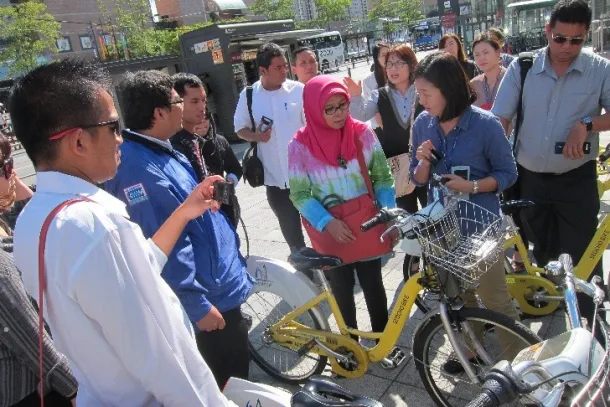Capacity Building
Sustainable Mobility

Channel Hub:
SHAPING transportation and traffic is an essential responsibility of cities. Urban mobility plays a fundamental role in achieving the favorable economic, social, ecological and cultural development of a community or a large urban area. Unfortunately, urban transportation systems particularly in many poorer countries do not yet satisfy the demands on a safe, healthy, socially equitable and environmentally compatible supply of mobility services to people and thus constitute an obstacle to development.
Moreover, the transportation systems of today, especially the extensive use of privately owned vehicles in most cities of the industrial countries, currently are not sustainable owing to their high consumption of non-renewable resources and their significant emissions. Sustainable mobility models in the cities of the world must rely on the one hand on the optimal utilization of all technological, planning and organizational resources, but on the other hand also are dependent on the development of a sustainable mobility culture by transportation users.
Understanding that cooperation of cities can lead to the more rapid spread of exemplary solutions, to greater sustainability of the urban transportation systems and consequently to more equity, UCLG ASPAC works with the Seoul Human Resource Development Center (SHRDC) to introduce Seoul’s best practices in the transport system. UCLG ASPAC and SHRDC organized in September 2015 the Sustainable Mobility Training in Seoul, Republic of Korea.
The inaugural training designed with UCLG ASPAC consisted of Indonesian local government officials who later established the Local Government Transport Officer Forum (LGTOF). The Forum serves as a new platform for Indonesian officials at the national and regional level to address escalating challenges of transportation in urban areas. With an action plan to adopt Seoul’s best practices at hand, the LGTOF commenced its first meeting in March 2016, in Salatiga City, Indonesia.












